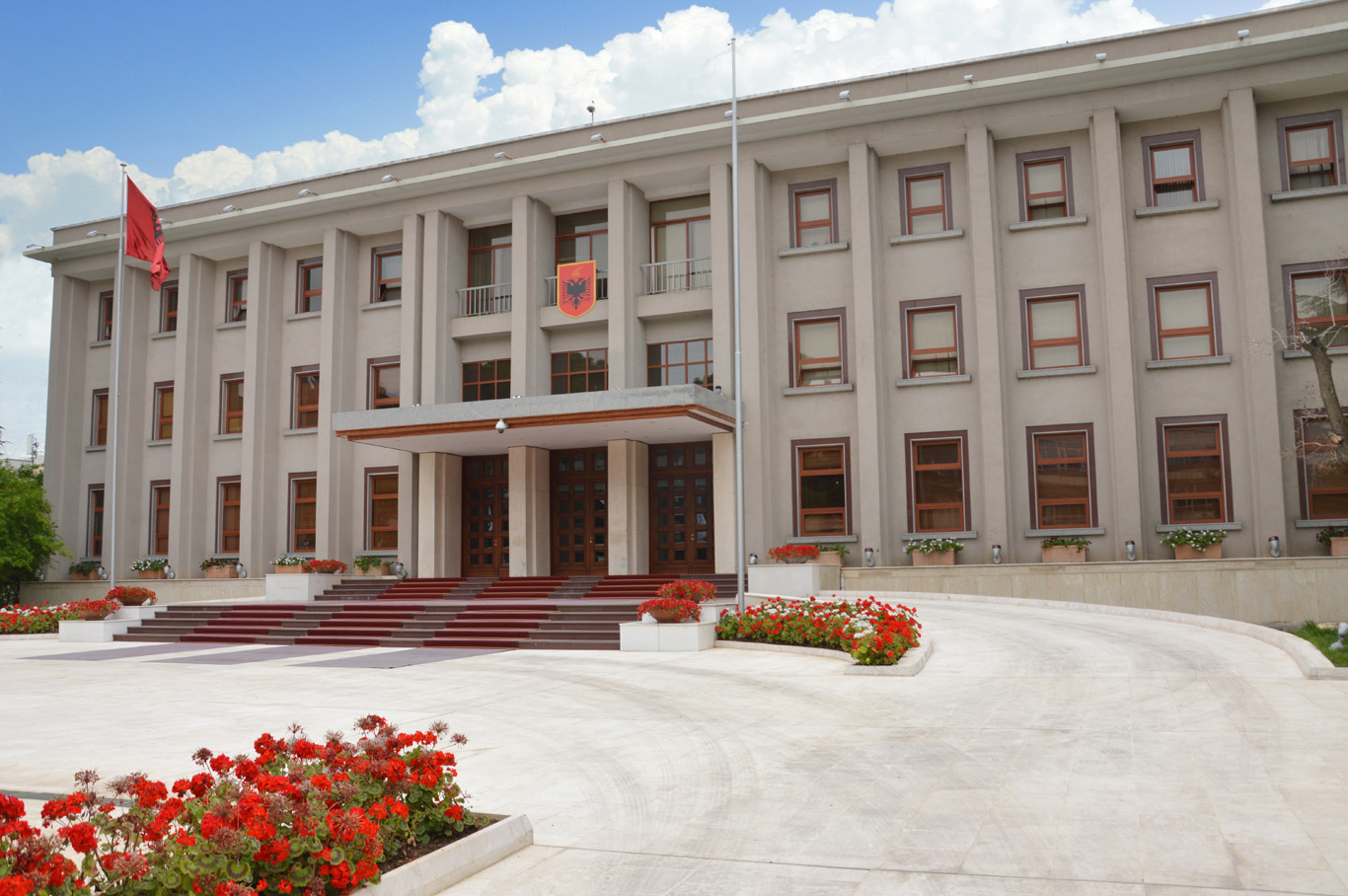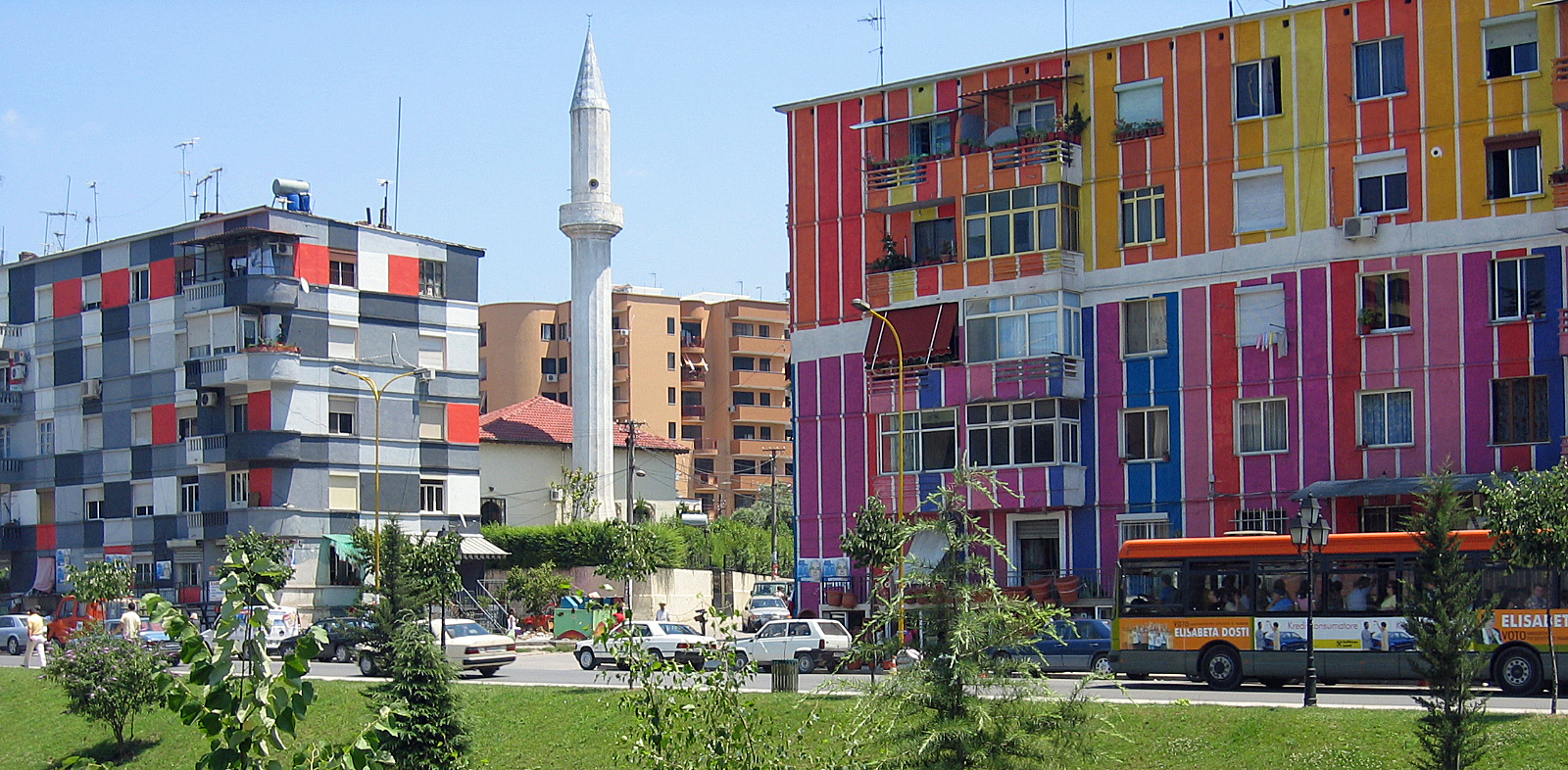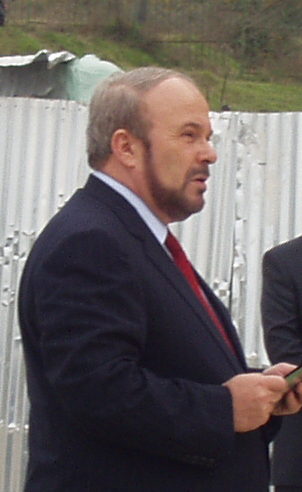|
Prime Minister Of Albania
The prime minister of Albania ( sq, Kryeministri i Shqipërisë), officially the prime minister of the Republic of Albania ( sq, Kryeministri i Republikës së Shqipërisë), is the head of government of Albania. The office of the prime minister is a core institution in the politics of Albania formed after the Albanian Declaration of Independence, Albanian declaration of independence on 28 November 1912. Since that time, the nation has navigated a dynamic political evolution spanning distinct periods, encompassing a Principality of Albania, monarchy, a People's Socialist Republic of Albania, communist regime and the eventual History of Albania#Fourth Republic, democratic order. In 1912, Ismail Qemali was inaugurated as the first prime minister of Albania, guiding the nation toward sovereignty amidst the complex conditions in the Balkans. In 1944, Enver Hoxha implemented a radical change in government, transforming Albania into an authoritarian and isolationist communist regime. I ... [...More Info...] [...Related Items...] OR: [Wikipedia] [Google] [Baidu] |
Edi Rama
Edi Rama (born Edvin Kristaq Rama, 4 July 1964) is an Albanian politician, painter, writer, former university lecturer, publicist and former basketball player, who has served as the 33rd and current Prime Minister of Albania since 2013 and chairman of the Socialist Party of Albania since 2005. Prior to his tenure as Prime Minister, Rama held a number of positions. He was appointed Minister of Culture, Youth and Sports in 1998, an office he held until 2000. First elected mayor of Tirana in 2000, he was reelected in 2003 and 2007. The coalition of centre-left parties led by Rama in the 2013 parliamentary election defeated the centre-right coalition around the Democratic Party of Albania of incumbent Prime Minister Sali Berisha. Rama was appointed Prime Minister for a second term following the 2017 election. Rama won a third mandate following the 2021 parliamentary election in which he defeated the Democratic Party of Albania candidate, Lulzim Basha, for the second time in a row ... [...More Info...] [...Related Items...] OR: [Wikipedia] [Google] [Baidu] |
Politics Of Albania
Albania is a unitary parliamentary constitutional republic, where the President of Albania is the head of state and the Prime Minister of Albania the head of government in a multi-party system. The executive power is exercised by the Government and the Prime Minister with its Cabinet. Legislative power is vested in the Parliament of Albania. The judiciary is independent of the executive and the legislature. The political system of Albania is laid out in the 1998 constitution. The Parliament adopted the current constitution on 28 November 1998. Historically Albania has had many constitutions. Initially constituted as a monarchy in 1913, Albania became briefly a republic in 1925, and then a democratic monarchy in 1928. In 1939 Albania was invaded by Fascist Italian forces, imposing a puppet state, and later occupied by Nazi German forces. Following the partisan liberation from the Nazis in 1944 a provisional government was formed, which by 1946 had transformed into a Communist on ... [...More Info...] [...Related Items...] OR: [Wikipedia] [Google] [Baidu] |
Oath Of Office
An oath of office is an oath or affirmation a person takes before assuming the duties of an office, usually a position in government or within a religious body, although such oaths are sometimes required of officers of other organizations. Such oaths are often required by the laws of the state, religious body, or other organization before the person may actually exercise the powers of the office or organization. It may be administered at an inauguration, coronation, enthronement, or other ceremony connected with the taking up of office itself, or it may be administered privately. In some cases it may be administered privately and then repeated during a public ceremony. Some oaths of office are statements of allegiance and loyalty to a constitution or other legal text or to a person or office-holder (e.g., an oath to support the constitution of the state, or of loyalty to the king or queen) (see Oath of allegiance). Under the laws of a state, it may be considered treason or a ... [...More Info...] [...Related Items...] OR: [Wikipedia] [Google] [Baidu] |
President Of Albania
The president of Albania ( sq, Presidenti i Shqipërisë), officially styled the President of the Republic of Albania ( sq, Presidenti i Republikës së Shqipërisë), is the head of state, commander-in-chief of the military and the representative of the unity of the Albanian people. The president has the power to set the date of the elections for the Parliament as well as referendum, grants pardons and awards. In case of incapability to discharge duties of office, the speaker of the Parliament assumes the office's powers and duties as acting president until the president resumes those powers and duties, or until election of a new president. The Office of the President of Albania consists of the immediate staff of the president of the country, as well as support staff reporting to the president. The office is seated in the Presidential Office in the capital city Tirana. The Constitution of Albania defines the appearance and use of the presidential standard, flown on building ... [...More Info...] [...Related Items...] OR: [Wikipedia] [Google] [Baidu] |
Parliament Of Albania
The Parliament of Albania ( sq, Kuvendi i Shqipërisë) or Kuvendi is the unicameral representative body of the citizens of the Republic of Albania; it is Albania's legislature. The Parliament is composed of no less than 140 members elected to a four-year term on the basis of direct, universal, periodic and equal suffrage by secret ballot. The Parliament is presided over by the Speaker, who is assisted by at least one deputy speaker. The electoral system is based on party-list proportional representation. There are 12 multi-seat constituencies, corresponding to the country's counties. The Parliament's powers are defined by the Constitution of Albania. It is responsible to amend the borders of Albania or the Constitution, passes all laws, approves the cabinet, supervises the work of the government, declares war, decides on cessation of hostilities, adopts the state's budgets and approves the state's accounts. Another duties includes, calling referendums, performs elections and app ... [...More Info...] [...Related Items...] OR: [Wikipedia] [Google] [Baidu] |
Elections In Albania
Regular elections in Albania are mandated by the Constitution and legislation enacted by Parliament. The Parliament (''Kuvendi'') has 140 members elected for four-year terms. The electoral system is closed list proportional representation. There are 12 multi-member constituencies corresponding to the country's 12 administrative regions. Within any constituency, parties must meet a threshold of 3 percent of votes, and pre-election coalitions must meet a threshold of 5 percent of votes. This electoral system replaced a mixed-member system in November 2008. Under the old system, 100 members were elected directly in single member constituencies with approximately equal numbers of voters. 40 were elected from multi-name lists of parties or party coalitions according to their ranking. The total number of deputies of a party or a party coalition was to be, to the closest possible extent, proportional to the valid votes won by that party or coalition on the national scale in the first roun ... [...More Info...] [...Related Items...] OR: [Wikipedia] [Google] [Baidu] |
Constitution Of Albania
The present Constitution of the Republic of Albania ( sq, Kushtetuta e Republikës së Shqipërisë) was adopted by the Parliament of Albania on 21 October 1998 and certified by presidential decree on 28 November 1998, following a failed referendum which was boycotted by the opposition. It is split up over many different acts. The document succeeded the 1976 Constitution, originally adopted at the creation of the People's Socialist Republic of Albania on 28 December 1976 and heavily amended on 29 April 1991. The present Constitution defines Albania as a unitary parliamentary constitutional republic. It has a unicameral legislature composed of 140 members, who elect the President as the head of state, the Cabinet, which consists of the Prime Minister as the head of government, Deputy Prime Minister and all other Ministers. The Constitution is divided into 18 parts which sanction a parliamentary democracy, people's sovereignty and fundamental rights of the citizens as well as other ... [...More Info...] [...Related Items...] OR: [Wikipedia] [Google] [Baidu] |
Fatos Nano
Fatos Nano (; born 16 September 1952) is an Albanian socialist politician who served as Prime Minister of Albania The Prime Minister of Albania ( sq, Kryeministri i Shqipërisë), officially styled Prime Minister of the Republic of Albania ( sq, Kryeministri i Republikës së Shqipërisë), is the head of government of the Republic of Albania and the mos ... in 1991, from 1997 to 1998 and from 2002 to 2005. He was the first leader and founder of the Socialist Party of Albania and a member of the Assembly of Albania, Albanian Parliament from 1991 to 1993 and 1997 to 2009. He reformed the anti-revisionist Marxist-Leninist ideology of the Labor Party of Albania into social democracy for its successor, the Socialist Party. During his leadership, the Socialist Party, as a result of reforms, joined the Socialist International and Party of European Socialists. Nano was a candidate in the 2007 Albanian presidential election, 2007 presidential election but did not win. He again tried ... [...More Info...] [...Related Items...] OR: [Wikipedia] [Google] [Baidu] |
Fall Of Communism In Albania
The fall of Communism in Albania, the last such event in Europe outside the Soviet Union, started in December 1990 with student demonstrations in the capital, Tirana, although protests started in January that year in other cities like Shkodra and Kavaja. The Central Committee of the communist Party of Labour of Albania allowed political pluralism on 11 December and the largest opposition party, the Democratic Party, was founded the next day. March 1991 elections left the Party of Labour in power, but a general strike and urban opposition led to the formation of a "stability government" that included non-communists. Albania's former communists were routed in elections in March 1992 amid economic collapse and social unrest, with the Democratic Party winning most seats and its party head, Sali Berisha, becoming president. Background Enver Hoxha, who ruled the Socialist People's Republic of Albania for four decades, died on April 11, 1985. Ramiz Alia succeeded Hoxha as the Fir ... [...More Info...] [...Related Items...] OR: [Wikipedia] [Google] [Baidu] |
Enver Hoxha
Enver Halil Hoxha ( , ; 16 October 190811 April 1985) was an Albanian communist politician who was the authoritarian ruler of Albania from 1944 until his death in 1985. He was First Secretary of the Party of Labour of Albania from 1941 until his death in 1985. He was also a member of the Politburo of the Party of Labour of Albania, chairman of the Democratic Front of Albania, and commander-in-chief of the armed forces and ruled the country from 1944 until his death in 1985. He was the 22nd Prime Minister of Albania from 1944 to 1954 and at various times was both foreign minister and defence minister of the People's Socialist Republic of Albania. Hoxha was born in Gjirokastër in 1908 and became a grammar school teacher in 1936. Following the Italian invasion of Albania, he joined the Party of Labour of Albania at its creation in 1941 in the Soviet Union. He was elected First Secretary in March 1943 at the age of 34. Less than two years after the liberation of the country ... [...More Info...] [...Related Items...] OR: [Wikipedia] [Google] [Baidu] |
Balkans
The Balkans ( ), also known as the Balkan Peninsula, is a geographical area in southeastern Europe with various geographical and historical definitions. The region takes its name from the Balkan Mountains that stretch throughout the whole of Bulgaria. The Balkan Peninsula is bordered by the Adriatic Sea in the northwest, the Ionian Sea in the southwest, the Aegean Sea in the south, the Turkish Straits in the east, and the Black Sea in the northeast. The northern border of the peninsula is variously defined. The highest point of the Balkans is Mount Musala, , in the Rila mountain range, Bulgaria. The concept of the Balkan Peninsula was created by the German geographer August Zeune in 1808, who mistakenly considered the Balkan Mountains the dominant mountain system of Southeast Europe spanning from the Adriatic Sea to the Black Sea. The term ''Balkan Peninsula'' was a synonym for Rumelia in the 19th century, the European provinces of the Ottoman Empire. It had a ge ... [...More Info...] [...Related Items...] OR: [Wikipedia] [Google] [Baidu] |
History Of Albania
The history of Albania forms a part of the history of Europe. During classical antiquity, Albania was home to several Illyrian tribes such as the Ardiaei, Albanoi, Amantini, Enchele, Taulantii and many others, but also Thracian and Greek tribes, as well as several Greek colonies established on the Illyrian coast. In the 3rd century BC, the area was annexed by Rome and became part of the Roman provinces of Dalmatia, Macedonia and Moesia Superior. Afterwards, the territory remained under Roman and Byzantine control until the Slavic migrations of the 7th century. It was integrated into the Bulgarian Empire in the 9th century. In the Middle Ages, the Principality of Arbër and a Sicilian union known as the medieval Kingdom of Albania were established. Some areas became part of the Venetian and later Serbian Empire. Between the mid-14th and the late 15th centuries, most of modern-day Albania was dominated by Albanian principalities, when the Albanian principalities fell to the ... [...More Info...] [...Related Items...] OR: [Wikipedia] [Google] [Baidu] |






